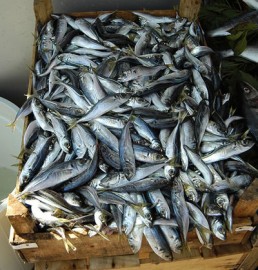
A British government consultation document on ethical trade in the food industry remarks that “the sourcing of fish from an unsustainable or sustainable source is as much an ethical issue as the payment the fishermen received for their labours.”
(from “Towards one planet food, Final submission from the Food Industry Sustainability Strategy Champions Group on Ethical Trade”, May 2007)
But I’m not sure how far ethics can deal with problems like this.
Federalists are naturally suspicious of appeals to ethics as the grounds for decisions that other people should take. We prefer the rule of law instead, as the means of guaranteeing or compelling behaviour. Bitter experience reveals the limits of appealing to other people’s better nature: far better to appeal to the courts.
There is a role for ethics, of course, in creating that rule of law and those courts. The choice to work for the creation of institutions is in itself an ethical choice. Federalists make a conscious effort to replace the arbitrary with the reasonable, the capricious with the justified, the unfair with the fair. We prefer the rule of laws to the rule of men (or women).
So what does this mean when it comes to paying for fish? Well, the payments received by the fishermen can be laid down by contract, and enforced in the courts. There should be rules regarding competition and trade union activity to determine how the contracts are negotiated. It would be unethical to exploit a powerful position in such a case, but the law is there to reduce the scope for this exploitation and the harm that it can do. Federalism is founded fundamentally on the notion of law.
But, in the case of catching fish, the sad truth is that there is no law, and, in a world founded on national sovereignty, no possibility of law. Fish will swim across borders, from one country’s waters to another, and many fish stocks will be out in the far ocean beyond the definition of national waters altogether. An appeal to ethics – “please don’t catch too many fish” – can’t be relied upon to protect fish stocks, but right now that is all we’ve got. There is a continuing incentive for each participant to cheat: this is another example of the tragedy of the commons. An international supervision of fish stocks would be much better, but who is willing to choose it?
